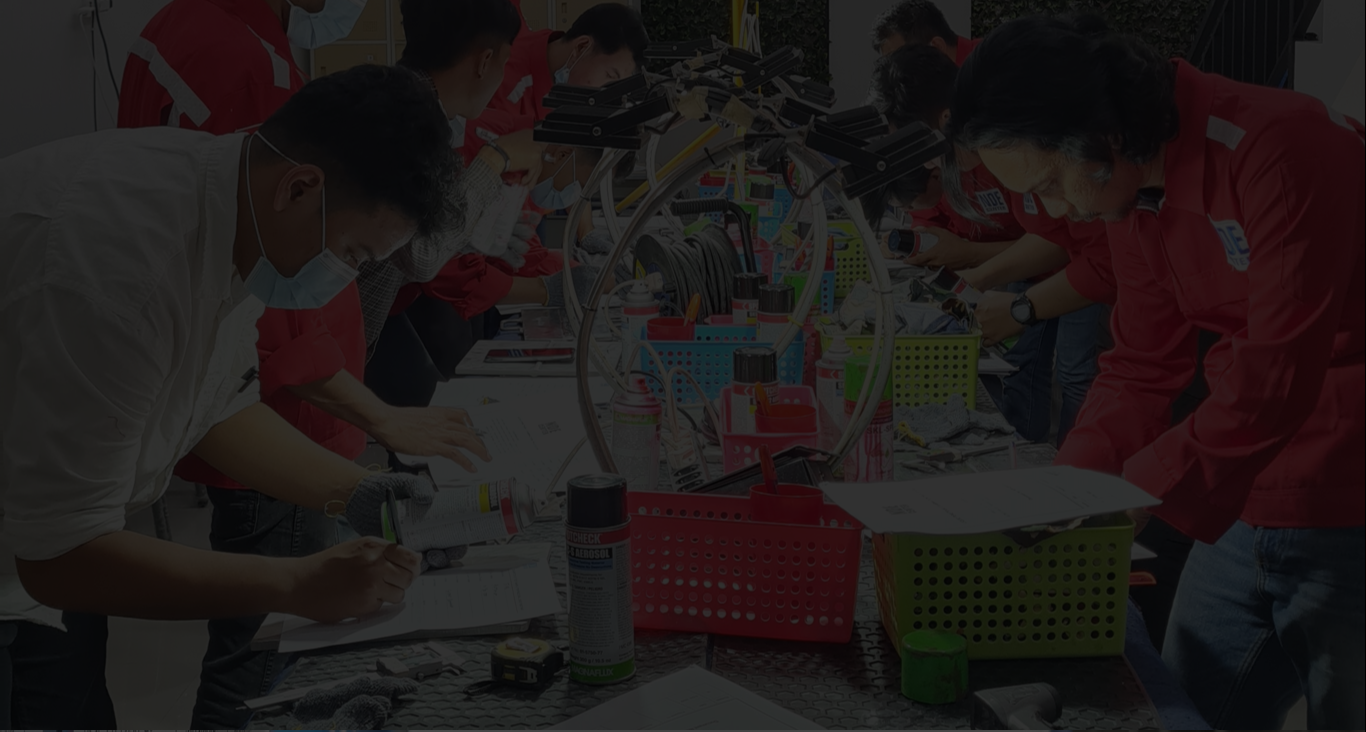
NDT LEVEL II TRAINING AND QUALIFICATION
In accordance with ASNT Recommended Practice No. SNT-TC-1A
LIQUID PENETRANT TESTING (PT) METHODS
Description
This training course provides a detailed theoretical and practical knowledge of the Liquid Penetrant Testing (PT) for assessing product quality, including weldment.
Objective
The course will provide training on the fundamental of the Liquid Penetrant testing, application of various techniques, identifying potential problems in the methods, and general information on how to apply the methods based on the specified codes and standards. It provides a basic but thorough review of all parameters should be considered to carry out the tests. Participants will also learn how to read and apply the inspection procedure, and write a clear and concise test report. Active participation is encouraged and enough time is given for question and answer period.
Highlight
Liquid Penetrant Testing: Basic principles, surface preparation, penetrant application, interpretation and evaluation of indications, quality control of penetrant process variable, categories and the origin of discontinuities, understanding SNT-TC-1A, understanding standards, specifications and written practices, and sample specification.
Who Should Attend
NDT and quality control personnel, inspectors and technicians involved in NDT jobs. This training course is also directed to engineering university students and fresh graduates who are interested in NDT and welding inspection field as part of their career.
Recognition
Upon completion of the course and passing general, specific, and practical examinations, an internationally recognized certificate of qualification will be granted to the participant, and he/she is considered to meet the requirements as NDT Level II in the PT methods.
EDUCATION AND EXPERIENCE REQUIREMENTS
Liquid Penetrant Testing Level II applicants MUST understand English (passive) and satisfy at least one of the following eligibility criteria:
1. Graduated from D3, D4, S1 engineering or science.
2. D3, D4, or S1 engineering or science students of at least in last semester.
3. High school (SMU-IPA/SMK TEKNIK) holding valid NDT Level I certificate or have experience in NDT of at least three years.